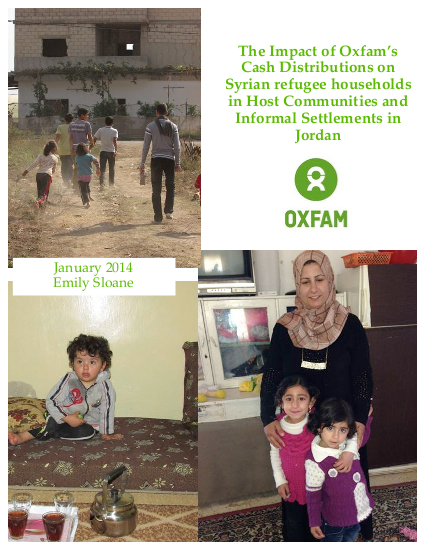
Given the absence of viable alternatives to cash transfer programmes (CTPs) in Jordan, such programmes will certainly continue for the foreseeable future. It is crucial to review their impact to date in order to identify common issues and lessons learned and adjust programmes accordingly. The present study was intended to enhance Oxfam’s understanding about the impact its cash transfer programmes have been having on Syrian refugees in order to feed into future programme design and advocacy work. It aimed to gather accurate and in-depth information from a small sample – eight families in total – selected to capture the diversity in household composition and vulnerability of beneficiary households and of the communities where Oxfam is distributing cash. The survey team spent about five hours with each family, gathering detailed data about family composition and history, involvement with Oxfam’s cash transfer programme, asset ownership, expenditure, humanitarian assistance, income, protection and food security. Findings suggest that Oxfam’s cash assistance has by and large served its intended purposes and has had a significant impact on beneficiary families, though this impact is limited, as the cash was only distributed for a three-month period. Most directly, it has helped refugee families to meet their basic needs, including housing and assets that allow for an improved standard of living. It has also allowed some families to address pressing health care needs, especially of children, in some cases contributing to medical treatment that was probably life saving. In other cases, it allowed financially desperate families to remain in Jordan rather than return to an extremely insecure Syria.